
Cuba's foreign policy has been fluid throughout history depending on world events and other variables, including relations with the United States. Without massive Soviet subsidies and its primary trading partner, Cuba became increasingly isolated in the late 1980s and early 1990s after the fall of the USSR and the end of the Cold War, but Cuba opened up more with the rest of the world again starting in the late 1990s when they have since entered bilateral co-operation with several South American countries, most notably Venezuela and Bolivia beginning in the late 1990s, especially after the Venezuela election of Hugo Chávez in 1999, who became a staunch ally of Castro's Cuba. The United States used to stick to a policy of isolating Cuba until December 2014, when Barack Obama announced a new policy of diplomatic and economic engagement. The European Union accuses Cuba of "continuing flagrant violation of human rights and fundamental freedoms". Cuba has developed a growing relationship with the People's Republic of China and Russia. In all, Cuba continues to have formal relations with 160 nations, and provided civilian assistance workers – principally medical – in more than 20 nations. More than one million exiles have escaped to foreign countries. Cuba's present foreign minister is Bruno Rodríguez Parrilla.

The Inter-American Development Bank is the largest source of development financing for Latin America and the Caribbean. Established in 1959, the IDB supports Latin American and Caribbean economic development, social development and regional integration by lending to governments and government agencies, including State corporations.

Black studies, or Africana studies, is an interdisciplinary academic field that primarily focuses on the study of the history, culture, and politics of the peoples of the African diaspora and Africa. The field includes scholars of African American, Afro-Canadian, Afro-Caribbean, Afro-Latino, Afro-European, Afro-Asian, African Australian, and African literature, history, politics, and religion as well as those from disciplines, such as sociology, anthropology, cultural studies, psychology, education, and many other disciplines within the humanities and social sciences. The field also uses various types of research methods.
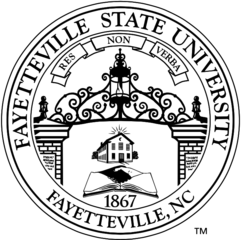
Fayetteville State University (FSU) is a public historically black university in Fayetteville, North Carolina. It is part of the University of North Carolina System and the Thurgood Marshall College Fund.

Comillas Pontifical University is a private Catholic higher education institution run by the Spanish Province of the Society of Jesus in Madrid Spain.

The W. K. Kellogg Foundation was founded in June 1930 as the W. K. Kellogg Child Welfare Foundation by breakfast cereal pioneer Will Keith Kellogg. In 1934, Kellogg donated more than $66 million in Kellogg Company stock and other investments to the W. K. Kellogg Trust. As with other endowments, the yearly income from this trust funds the foundation.

Education in Cuba has been a highly ranked system for many years. The University of Havana was founded in 1727 and there are a number of other well-established colleges and universities. Following the 1959 revolution, the Castro regime nationalized all educational institutions, and created a system operated entirely by the government. Education expenditures continue to receive high priority.
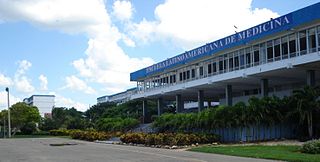
Escuela Latinoamericana de Medicina (ELAM), formerly Escuela Latinoamericana de Ciencias Médicas, is an international public medical school operated by the Cuban government established in 1999. Its mission is to "contribute to the training of Primary Health Care physician in diverse regions of the World".
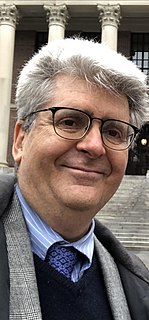
Fernando M. Reimers is the Ford Foundation Professor of the Practice in International Education and Director of the Global Education Innovation Initiative and of The International Education Policy Program at Harvard University. He is interested in advancing understanding of the ways schools can empower students to participate civically and economically, and to help achieve the UN Sustainable Development Goals. He is a member of UNESCO's Commission on the Futures of Education.

The Colombian Navy, officially the Colombian National Navy, also known as the "Armada Nacional" or just the "Armada" in Spanish, is the naval branch of the military forces of Colombia. The Navy is responsible for security and defence in the Colombian zones of both the Atlantic (Caribbean) and Pacific oceans, the extensive network of rivers inside the country, and a few small land areas under its direct jurisdiction.
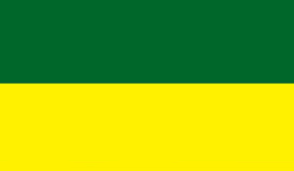
General Santander National Police Academy is the main educational center for the Colombian National Police. The academy functions as a university for the formation of its force.

Vme is a Spanish language video on demand media service, formerly carried as a public broadcasting network in association with public television stations created for the United States Hispanic market. Vme delivers drama, music, current affairs, food, lifestyle, nature and educational pre-school content to its viewers.
ORT, also known as the Organisation for Rehabilitation through Training, is a global education network driven by Jewish values. It promotes education and training in communities worldwide. Its activities throughout its history have spanned more than 100 countries and five continents. It was founded in 1880 in Saint Petersburg to provide professional and vocational training for young Jews.

Education in Azerbaijan is regulated by the Ministry of Education of Azerbaijan.
After the 1959 Cuban Revolution, Cuba established a program to send its medical personnel overseas, particularly to Latin America, Africa, and Oceania, and to bring medical students and patients to Cuba for training and treatment respectively. In 2007, Cuba had 42,000 workers in international collaborations in 103 different countries, of whom more than 30,000 were health personnel, including at least 19,000 physicians. Cuba provides more medical personnel to the developing world than all the G8 countries combined, although this comparison does not take into account G8 development aid spent on developing world health care. The Cuban missions have had substantial positive local impacts on the populations served. It is widely believed that medical workers are a vital export commodity for Cuba. According to Granma, the Cuban state newspaper, the number of Cuban medical staff abroad fell from 50,000 in 2015 to 28,000 in 2020.

Students For Liberty (SFL) is an international libertarian non-profit organization with origins in the United States. Its stated mission is "to educate, develop, and empower the next generation of leaders of liberty." Formed in 2008 after a meeting at which students shared ideas and experiences about classical liberal student groups, SFL has since grown into a full organization with various programs and a network of affiliated student groups.

The National Pedagogic University located in Bogotá, capital of Colombia, is a university under the Ministry of National Education of Colombia. It began academic works as a female education institution; in 1962 it acquired its national and joint character.
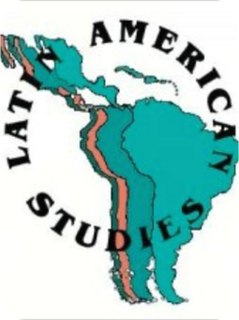
The University of Pittsburgh’s Center for Latin American Studies, commonly known as CLAS, is a National Resource Center on Latin America. The Center, founded in 1964 as part of the university's Center for International Studies, offers undergraduate and graduate students multidisciplinary training on Latin American and Caribbean studies.
Mirtha Colón is a Honduran-born Garifuna activist and social worker who assists Caribbean migrants in The Bronx and travels widely supporting the issues of HIV prevention, sex education and cultural preservation. In 2012, she was recognized by the New York State Legislature for her service to the African diaspora in the state.
La Casa Ida was a medialab and cultural center active between 2006 and 2014 in Lima, Peru, focused on research, production and education in technological artistic practices. It was founded by a group of contemporary artists led by architect, electronic arts researcher and professor Alvaro Pastor.















